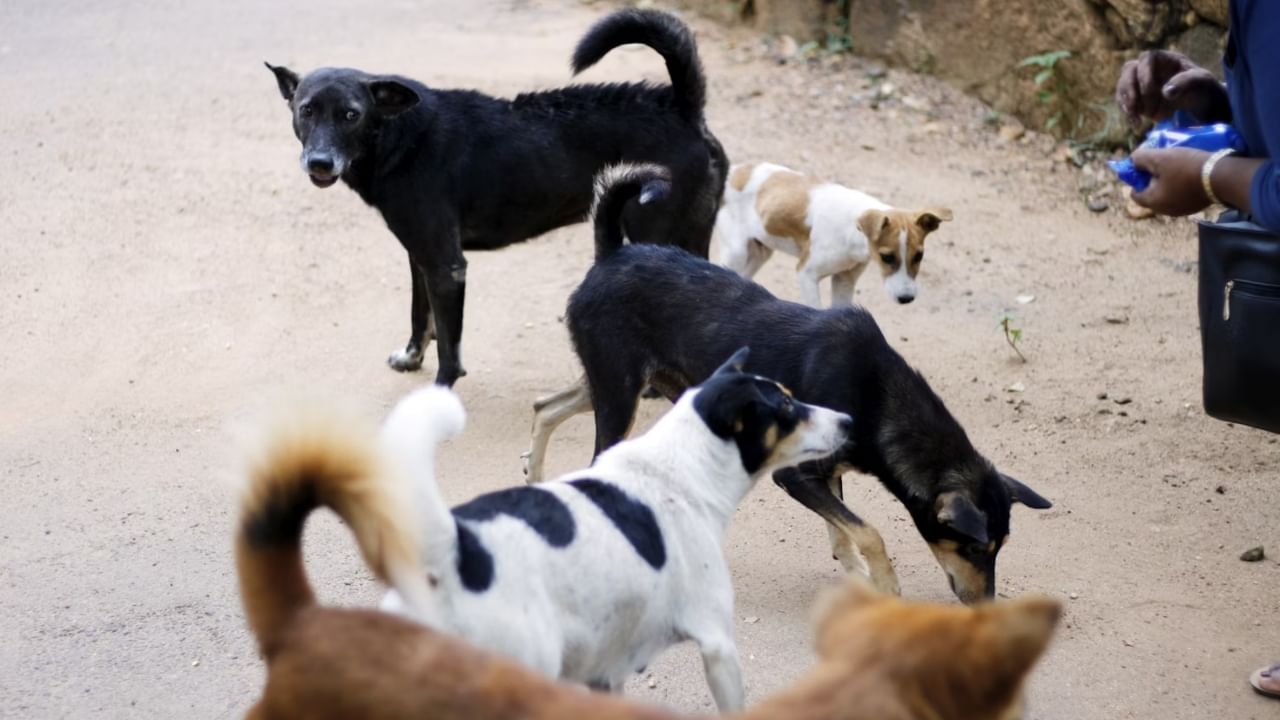New Delhi: Nearly a month after the Supreme Court revised its order on stray dog management, the Delhi and Uttar Pradesh governments have introduced guidelines adopting a more humane approach to handling street dogs, focusing on sterilisation, vaccination, safe feeding practices, and reducing human-dog conflicts.
The Supreme Court’s August 22 order modified an earlier directive from August 11, which had prohibited the release of stray dogs once picked up by civic authorities. The new ruling clarified that dogs must now be returned to their original locations after sterilisation and vaccination, except in cases where animals are rabid or display aggressive behaviour.
The court also issued notices to all states and union territories, as well as the Animal Husbandry department, signalling a nationwide review of stray dog management practices.
In response, the Delhi Department of Urban Development circulated the new guidelines to the Municipal Corporation of Delhi (MCD), the New Delhi Municipal Council (NDMC), and the Delhi Cantonment Board (DCB). The framework has been drafted in accordance with the Prevention of Cruelty to Animals Act, 1960, the Animal Birth Control Rules, 2023, and the Supreme Court’s directions, while incorporating the revised Animal Birth Control Module from the Animal Welfare Board of India (AWBI)
Former MP Maneka Gandhi explains new guidelines issued by Delhi government
View this post on Instagram
.
Key points of Delhi’s new stray dog guidelines
-
Implementation responsibility: MCD, NDMC, and DCB to oversee the programme.
-
Animal Welfare Organisations (AWOs): Only AWBI-recognised AWOs may participate; all staff must undergo mandatory AWBI training and certification.
-
Infrastructure requirements: Centres must have sufficient kennels, operation theatres with power backup, modified transport vans, proper waste disposal, and CCTV coverage stored for at least 30 days.
-
Animal care & records: Detailed records of sterilisation, vaccination, feeding, and medical care must be maintained; expenses reimbursed after verification.
-
Monitoring & reporting: Local ABC committees to hold monthly meetings; annual reports submitted to AWBI by May 31.
-
Dog release & relocation rules: Dogs must be returned to their original location; relocation or euthanasia prohibited. Aggressive or rabid dogs handled humanely and isolated if needed.
-
Feeding guidelines: Designated feeding points with proper cleanliness, leftover disposal, and signboards; violations subject to legal action. Best-performing RWAs may be rewarded.
-
Public awareness: Campaigns in schools, NGOs, and with animal caretakers to educate the public on dog behaviour, feeding, and vaccination.
-
Pet registration: All dogs over three months must be registered and linked to rabies vaccination; Indian-bred dogs exempt. Owners must provide breed, gender, and vaccination history.
-
Handling aggressive dogs: Aggressive or rabid dogs to be confined and treated humanely; repeat offenders may be housed in private AWBI-recognised shelters.
Uttar Pradesh also opts form humane approach towards stray dogs
Meanwhile, the Uttar Pradesh government has introduced similar measures for aggressive stray dogs. Dogs that bite humans without provocation will be kept in animal centres for ten days, sterilised, microchipped, and returned to their original location.
Repeat offenders may remain in the centre for life unless adopted, with adopters required to provide lifelong care. A three-member panel, including a veterinary doctor, an animal behaviourist, and a municipal representative, will determine whether incidents are provoked or unprovoked.
These comprehensive measures in Delhi and Uttar Pradesh aim to balance public safety with animal welfare, ensuring that sterilisation, vaccination, and responsible pet ownership reduce human-dog conflicts while protecting the city’s stray canine population.
